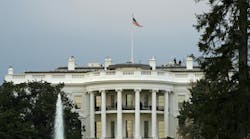The US Supreme Court ruled June 30 that the Environmental Protection Agency (EPA) lacks the authority to set emission standards so strict that many power plants burning natural gas or coal will be unable to comply.
In a 6-3 opinion written by Chief Justice John Roberts, the court ruled that the Obama administration’s 2015 Clean Power Plan, designed to force a shift of power generation from fossil fuels to renewable and other energy sources, lacked any “clear congressional authorization.”
Clean Air Act Section 111 authorizes the Environmental Protection Agency (EPA) to establish standards to reduce emissions at power plants through use of the “best system of emission reduction” that had been “adequately demonstrated.”
The Obama EPA decided the term “system” could be used to justify emission standards that would not merely reduce a generator’s emissions but eliminate the generator, forcing “generation shifting” to lower-emission systems.
The Clean Power Plan was designed to force change in three ways—by tightening efficiency standards, by forcing shifts from coal-fired to natural gas-fired plants, and by forcing shifts from both gas and coal to renewables and other less-polluting energy sources.
The EPA’s 2015 Clean Power Plan was repealed replaced by the 2019 Affordable Clean Energy rule, but the US Court of Appeals for the District of Columbia Circuit vacated the Trump EPA’s rule. That ruling, in 2021, undid the repeal of the earlier plan, leaving the Obama EPA plan potentially available for use, though it has never yet been implemented.
The case was West Virginia v. EPA. The Supreme Court decision overturned the ruling by the D.C. Circuit’s ruling.
‘Major Questions’ doctrine
The Roberts opinion applied the Supreme Court’s “major questions doctrine,” a doctrine of insisting that if a very fundamental change is attempted through regulation, there must be a clear grant of authority by Congress rather than a justification based on an agency’s interpretation of vague terms in a statute.
Roberts wrote that the doctrine addresses “a particular and recurring problem: agencies asserting highly consequential power beyond what Congress could reasonably be understood to have granted.”
He suggested EPA itself had shown no sign of believing the agency could fundamentally revamp the electric power sector prior to the writing of the Clean Power Plan.
“Prior to 2015, EPA had always set emission limits under Section 111 based on the application of measures that would reduce pollution by causing the regulated source to operate more cleanly,” Roberts wrote. Plant operators could comply by installing better equipment, such as the scrubbers that remove pollutants from smokestacks.
“By contrast, and by design, there is no control a coal plant operator can deploy to attain the emission limits established by the Clean Power Plan,” Roberts wrote.
Dissent and harsh words
A dissent written by Justice Elena Kagan, joined by Stephen Breyer and Sonia Sotomayor, argued that the Obama EPA was fully justified in deciding that the Section 111 use of “best system” could refer to an entirely different power system.
“The parties do not dispute that generation shifting is indeed the ‘best system’—the most effective and efficient way to reduce power plants’ carbon dioxide emissions,” Kagan wrote.
But that point was not the central dispute before the court. The case hinged on the question of whether Congress intended the term “best system” to include generation shifting.
The case pitted 19 states and many industrial groups against EPA. The position of the Biden EPA was supported by 23 other states, several localities, several power suppliers, and environmental activists.
Rep. Raul Grijalva (D-Ariz.), chairman of the House Natural Resources Committee, had harsh words for the court decision, which he blamed on Republicans’ “extremist political hijack of the Supreme Court.”
The congressman issued a statement saying, “With today’s decision to gut the federal government’s ability to keep carbon pollution from some of the country’s biggest climate change offenders in check, they’ve sentenced our planet to death.”
Manish Bapna, president of the environmental advocacy group Natural Resources Defense Council, issued a statement saying, “The ruling recognizes the EPA’s authority to limit the carbon pollution from the nation’s power plants, while narrowing the agency’s options for doing so.”
Bapna urged EPA to set standards that cut carbon emissions from power plants that burn gas or coal.

